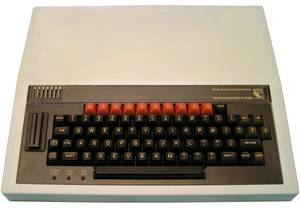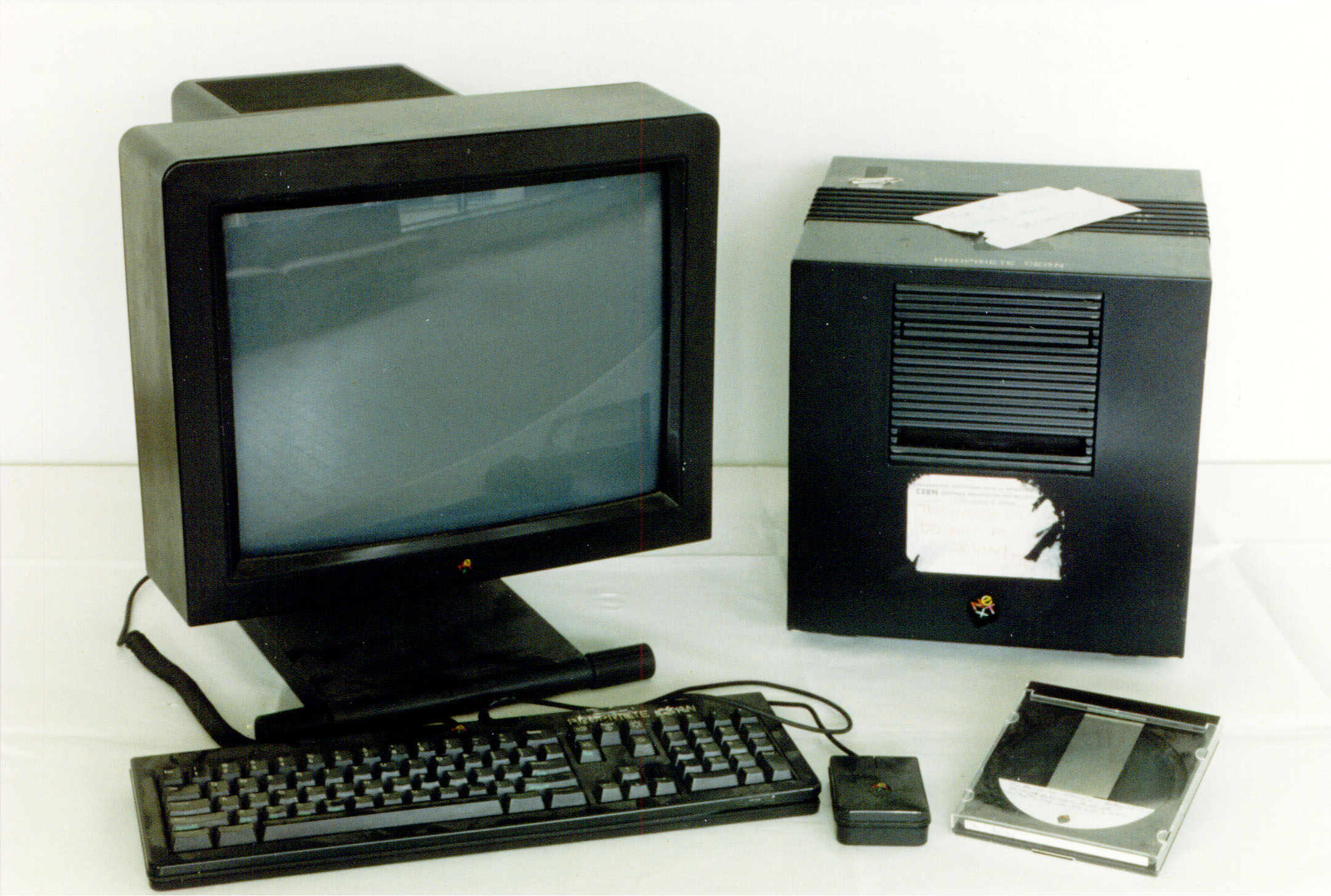The Vintage Computer Festival
Interview with
Meera: - Once again, I've come down to the BBC in White City in London to meet our resident technology expert, Chris Vallance. But this time, we're doing things a little bit differently because we're inside a pod inside one of the BBC cafes.
Chris V - Yes, we're in the cafeteria. We hurried out of the rain then we chanced upon this experimental pod for confidential meetings, which is really just a small glass or sort of Perspex room.
Meera: - So, this is a bit of an architectural trial, shall we say, but what have you been up to in terms of technology recently Chris?
Chris V - Well, I've been travelling back to the future. I went Bletchley Park. Now Bletchley Park is an interesting place to go visit if you've got an interest in technology. It's the home of Britain's World War II code breaking efforts and if you go there now, you can see a lot of the pioneering early electronic digital computers that we use to crack German codes, pioneering work by people like Alan Turing.
It's also home of the National Museum of Computing, but over the summer, it played host to Britain's First Vintage Computer Festival. What's a vintage computer festival? Well, if you're of a certain vintage yourself like me, a child of the '70s or a child of the '80s, you may remember BBC micros, LX 81s, VIC 20s, Commodore 64s. Perhaps you remember an Aquarius or an Acorn electron or Sinclair QL. All those machines and the enthusiasts who look after them and repair them were there.
Two thousand people came along to look at these things. People are doing really interesting things with the old bits of kit. They were pushing the machines to their limits, getting old games, repairing machines. There was even a ZX Spectrum which people connected up to the internet and you could Twitter from the Spectrum.
Other kinds of things where people really are just seeing how far they could push the graphics and the sound, and the processing power of these machines. For example, one group was showing off a ZX-81, running an image of a bouncing ball. That 3-dimensional bouncing ball doesn't sound very particularly impressive by today's standards when you consider how basic the machines are, you know, that's quite a challenge. So people doing things like that.
Some groups are actually sort of continuing to update the machines and to bring out new versions of them because if you like, they enjoy the way the machines work. So there's a big group of people who were very enthusiastic for the Commodore Amiga. You know, there are new versions of that machine coming out that were on display at the show. But it wasn't just the machines that were from the 1980s. I spoke to Chris Serle who used to present the BBC's computer show.
Chris S - In the early '80s, I co-presented the BBC's first ever television series dedicated to computers and it was the series which gave rise to the development of the BBC microcomputer which ended up in almost every school in the country.
Chris V - What's the importance or maybe just what's the joy of events like this?
Chris S - It's the first time this has happened and I think it's ridiculous that it's taken this long actually. I mean, arguably, the scientists in this country invented the computer.
...
Chris V - Tell me why you're here.
Vintage computer fan - Because I love computers. I mean, you go to see loads of other things that are really old. You go to see Spitfires and Lancasters, and stuff like that. It just makes a change to go and see something else.
Chris V - Commodore 64, I guess a 1980s machine?
Another vintage computer fan: - Yes, '80s. I can't quite remember. I play around my one, but yes.
Chris V - I just made you crash as well. I'm very sorry. You were flying a yellow spaceship, shooting lots of things and it's all gone wrong. Do you work in computers?
Another vintage computer fan - Yes. My dad brought one home and ever since then, yes, it hasn't really been a day gone by we're having played with the computer.
Chris V - What have you enjoyed most? What's the thing here that you've liked playing on those?
A young vintage computer fan - The games over there, because it's brought me a bit more to like computers now.
Chris V - And that the games over here, they're quite simple. I mean, the one over there that you're pointing out, that's Space Invaders which old people like me used to play, but you still quite like it?
Young vintage computer fan - Yeah, because it's quite a short game. If you're getting ready for bed and you just wanted to play a quick game on the computer, you could just choose Space Invaders. 
Chris V - So the old machine's were a hit even with those who'd never experienced them the first time around.
Meera: - Now Chris, did you have a go on any of the old machines and how were they functioning?
Chris V - Well, I mean, it was all great. I mean, I remember them from being a kid and I think - what did I have? I had an Acorn Electron. I think what's interesting is just that people were using the old machines to do new and interesting things, for people who enjoy programming and enjoy tinkering with electronics. There's something of a challenge to get an old machine to do things that it wasn't designed to do and having a limited amount of power, and resources at your disposal. I mean, millionths of the kind of memory that you have even in phones. If you think about it, a ZX81 had a 16k memory. If you bought an expansion pack! My phone's got 16 Gigs on it, so that's a millionth of the capacity. I think one of the interesting things is, you know, for the younger generation, the games are still fun, and the machines are still fun to play around with. And they really do sound like computers. There's something about that retro beeps and bloops, and the noises they make that's really endearing.
Chris - Making a machine do what it wasn't designed to do. I think Lada cars pioneered that concept with the heated rear windscreen that doubled up as a hand warmer to keep you from freezing when you are pushing. Anyway, that was Chris Vallance and he was showing Meera Senthilingam how to make the most of your old computers, and also revealing how computers, and not just clothing, are valuable when they're vintage.










Comments
Add a comment